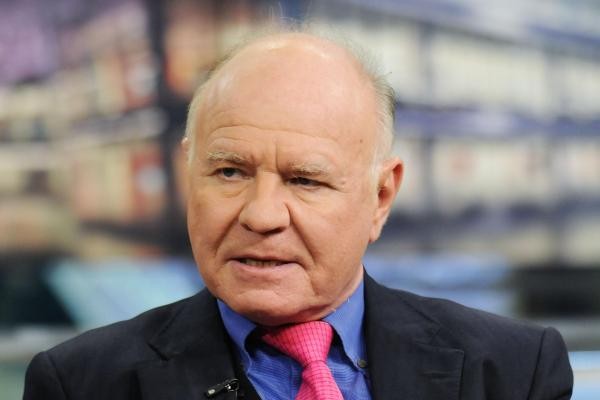MARC FABER THE BEGINNING OF THE BEAR MARKET D
Post on: 24 Июль, 2015 No Comment

Original article written by Catherine Boyle. from CNBC.com
The bear market is on its way back, economist and contrarian investor Marc Faber. the editor and publisher of The Gloom Boom & Doom Report told CNBC Tuesday.
The bear market is starting. When you compare equities to bonds and cash I dont think equities are very positive, Faber said in an interview.
Markets have been more turbulent in recent months as debt crises in both the US and the euro zone threatened to damage growth there.
The Treasury market is telling you that the economy is in recession , said Faber. So if the bond market is telling you that the economies of the Western world are weakening, but at the same time the stock market is still relatively high, I think the stock market is vulnerable .
He added his voice to those criticizing politicians in the US and elsewhere over the current problems.
The politicians are all useless individuals. Nobody is reducing the problems in the US or Europe, just putting on a band aid and postponing the problems endlessly, he said.
Some analysts think that theres a chance economic data will surprise on the upside but I think, if anything, it will be on the downside , Faber added.
He believes that some companies will start to disappoint in the second half of this year.
China Bigger Risk
Second-quarter results so far have been a mixed bag. with major European banks such as BNP Paribas and Barclays announcing disappointing results on Tuesday, while earlier in the week Motorola and engineering giant EADS performed better than expected.
The most recent plan for US debt, which the Senate will vote on Tuesday afternoon, involves more than $1 trillion of spending cuts and a hard-won raising of the debt ceiling.
Faber argues that China disappointing is a much bigger risk for the global economy than the US because the US is no longer a major commodities buyer.
He believes that the impact of a decline in Chinese growth on the oil price could be critical for major commodities producers like Canada, Australia and the Middle East.

If commodity prices are falling, then commodity producers will buy fewer goods from China, he pointed out. This is something that the world central bankers cant deal with .
Food price inflation is more of a problem in emerging markets than in the developed world as food is typically a much bigger part of annual spend in poorer countries, Faber pointed out, arguing that this could lead to worse than expected growth in China.
Faber, who describes himself as ultra-bearish, said that he thinks that precious metals are the best place to be at the moment.
Despite worries about major euro zone economies including Italy, he is relatively bullish on the survival of the euro.
What surprises me more is actually the strength of the euro and that it has not collapsed yet , he said
He believes that peripheral economies which drag down the euro will eventually be chucked out of the single currency.
I would have chucked out Greece three years ago, straight away, and it would have been much cheaper, Faber said.














